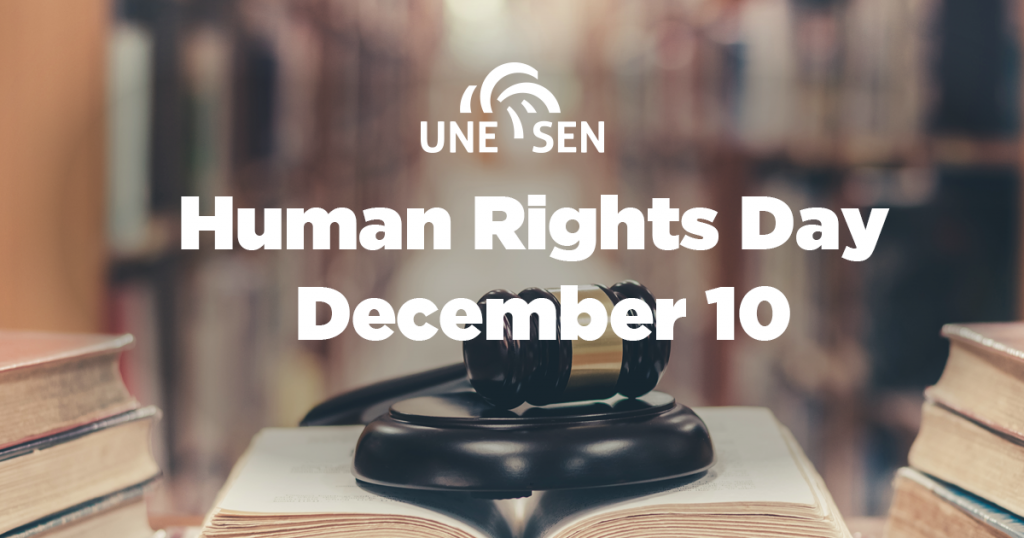
December 9, 2021
I have often wondered about the origin of the Universal Declaration of Human Rights which was adopted by the General Assembly of the United Nations (UN) on December 10, 1948 in Paris, at the Palais de Chaillot, by resolution 217 (III) A. It specifies the fundamental rights of humankind. Because of the horrors of the Second World War, the international community decided to draw up an international bill of rights to affirm the values put forward in the fight against fascism and Nazism.
But as I continued my research, I found that the origins go back even further to Antiquity:
- In the Nicomachean Ethics, Aristotle talks about the principle of dignity and the respect that the individual should have for others.
- In Marcus Aurelius’ Thoughts and Cicero’s Tusculana (on the notion of jus hominum, “the right of men”), taking up Plato’s words.
- In religious texts (such as the Ten Commandments, which command the right to life, to honor, etc.).
- In Saint Paul, in the epistle to the Corinthians, who speaks about the interior man, totally virgin, by granting him an absolute dignity.
- In literary texts, such as the play Antigone by Sophocles, or in philosophical texts, such as those of the Stoic school of thought.
Moreover, we find writings in several regions of the world like the Edict of Milan or Edict of Constantine I in the year 313; in the 13th century with the Charter of Manden in Africa; in the 15th and 16th centuries with the great Islamic jurisconsults of the Mali Empire.
Also, through the Great Texts (13th – 17th centuries), we can go back to the Middle Ages to find the first manifestations, concrete and with real effects in practice, of the idea of human rights, gathered under the name of human rights of the first generation:
- The Magna Carta in 1215. This text is important but was only really used from the 17th century moving forward, as an instrument against the royal absolutism of the Stuarts.
- The Twelve Articles in 1525.
- The Petition of Rights in 1628.
- The Habeas Corpus Act in 1679 (foundation of criminal law).
- The Bill of Rights in 1689. It is considered in the English-speaking world to be the basis of current human rights concepts.
The first Declaration of Human Rights (June 12, 1776) was the one of the State of Virginia, written by George Mason, who was called “The Father of the Bill of Rights”. It was included in the Declaration of Independence of the United States on July 4, 1776, by Thomas Jefferson, and inspired the Declaration of Human Rights of 1948. A few years later, France, under the reign of Louis XVI, promulgated the Declaration of the Rights of Man and of the Citizen on November 3, 1789. Unfortunately, this declaration excluded women and it was not until 1948 and the intervention of Eleanor Roosevelt that the notion of gender was explicitly included in an international convention, the famous Universal Declaration of Human Rights of the UN.
Human rights are based on respect for the individual. Their fundamental principle is that a person is a moral and rational being who deserves to be treated with dignity. They are called human rights because they are universal. Human rights are the fundamental rights and freedoms that belong to every person in the world, from birth to death. These fundamental rights are based on common values such as dignity, fairness, equality, respect and independence.
In closing, I would like for this day to open up the discussion in your communities, your families, your workplaces because it is the basis for a better world and it is up to each of us to promote it by continuing to defend these rights. The UNE’s Human Rights Committee is proud of its leadership within PSAC and will continue to help members address the importance of respecting and defending those RIGHTS.
Daniel Toutant
National Vice-President for Human Rights
UNE-PSAC